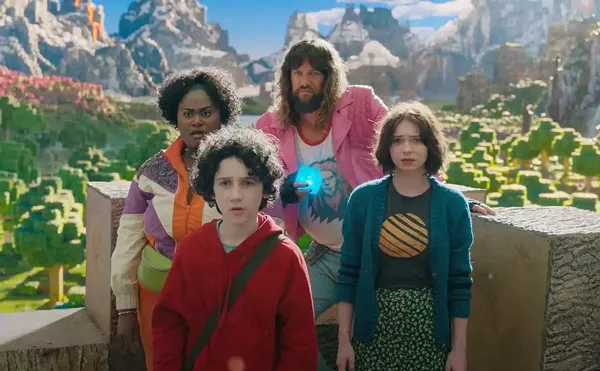This handsomely crafted, well-intentioned period piece could have been made 50 years ago, as it closely follows a time-honored recipe of romance, adventure and a dash of sanctimony. The tale of a noble, Western journalist bravely saving Chinese war orphans — equal parts Cider House Rules and The Killing Fields — is faintly patronizing, somber, sentimental and wholly, achingly boring.
Male model-turned-bland actor Jonathan Rhys Meyers plays the real-life English adventurer George Hogg, little-known here but revered in China, in a story that plays fast and loose with the facts, since who's going to quibble? Hogg is an Oxford sophisticate turned green newspaper man kicking around Shanghai in the late 1930s, when he borrows a Red Cross worker's identity to enter the war-ravaged city of Nanjing, which has been closed to reporters. The Japanese army is in the process of plundering the town and slaughtering the residents, and George is soon captured and facing the business end of an officer's katana. He's rescued by roguish communist rebel leader "Jack" Chen Hansheng (Chow Yun-Fat), who takes him to the northern village of Huang Shi where he can lick his wounds and brush up on his Chinese. Once safely tucked away at a boy's orphanage, he becomes a reluctant headmaster-guardian to a mob of unruly ragamuffins who mistranslate his name as "Pig." He also makes the acquaintance of elegant medicine supplier Madam Wang (Michelle Yeoh) and a radiant American nurse who pickpockets his heart at first sight (Radha Mitchell). As the war rages on, the domestic tranquility can't last, with the nationalist army hungry for new conscripts. Mr. Chips— er, Hogg won't let his charges become cannon-fodder, so he concocts the crazy idea of marching them almost 700 hundred miles west to a remote dessert town in Gobi, safely away from the front lines.
It's certainly a fascinating and worthwhile story, but something about it fails to engage. Director Roger Spottiswoode's sort of a hack, better suited to comedy fluff like Turner & Hooch, and with material like this, his style can't help but be sappy and ham-fisted where it should be incisive and bold. Chen calls China "the bitter sea," a churning wave of sorrow through which the people can only try and hold on and endure, a feeling we can relate to by the time the credits roll.
Showing at the Maple Art Theatre, 4135 W. Maple Rd., Bloomfield Hills; 248-263-2111.
Corey Hall writes about film for Metro Times. Send comments to letters@metrotimes.com.






